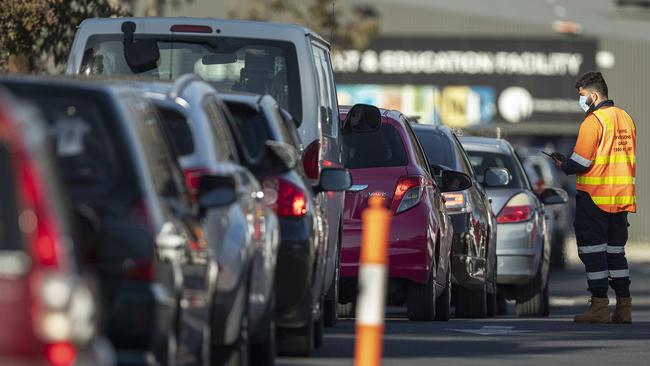Coronavirus: Localised lockdowns ‘won’t be the last’
Public health experts have described localised lockdowns as a ‘time-honoured’ way of containing the spread of infectious disease.

Public health experts have described localised lockdowns as a “time-honoured” way of containing the spread of infectious disease, but have warned that wider restrictions may follow in the face of wider public complacency.
Victoria is employing a multi-layered strategy to try to get on top of a resurgence in COVID-19 cases: test, trace, isolate and locally lock down.
While identifying cases and quarantining close contacts is effective in stopping the spread of disease, it’s unlikely to be enough on its own to contain the outbreak, said University of Melbourne epidemiologist Tony Blakely.
“The localised lockdowns are absolutely essential,” Professor Blakely said.
“It’s a textbook public health measure. Will it work? Nobody knows. But my guess is it will probably work pretty well.
“The best-case scenario is that over the next months we’ll see a few more postcodes have to go into lockdown. It’s also possible that the disease will continue to leach out, and in that case we may be heading towards a Melbourne-wide stay-at-home order.”
Australian National University College of Health and Medicine professor Shane Thomas said he believed people in the suburbs now under lockdown in Melbourne were paying the price for wider public complacency.
Professor Thomas said as social-distancing restrictions eased, there was not enough of a public health message put forward that COVID-19 still posed a great threat.
“When you look at the messaging about what people should be doing, it’s very complicated,” he said. “There are lots of stages, there’s lot of things you should do and shouldn’t do.
“They’ve made it very complicated for people, and people have gotten sick of it, thinking can I do this or can I do that. In a way people have given up because they don’t understand the arrangements properly. I think a lot of people have been thinking ‘oh beauty, I can relax, now, I’ll go to the supermarket and the local shopping centre’.
“Now the people in these lockdown suburbs are kind of paying the price for the collective behaviour of the community.
“I think it would be better to be much more aggressive in sending people the message to not violate the arrangements.”
Federal Deputy Chief Medical Officer Paul Kelly backed Victoria’s response, referring to it as an “innovative and proportionate solution” to deal with the outbreak.
Professor Kelly likened the methods applied to controlling the spread — testing, tracing and isolating — to those used during the hospital outbreak in Tasmania earlier in the year.
“We learnt that going hard and going quickly was important,” he said. “So as happened in northwestern Tasmania, a decision was made as to where the main problem was, and to really concentrate the resources on those areas.”
Director of the University of Queensland’s Centre for Clinical Research, David Paterson, said localised lockdowns would inevitably become more common as Australia continues to battle the pandemic.
“I think our future is that any lockdowns are going to be very focused,” he said.
“I think that’s an acceptable trade-off. Really from a public health point of view we’ve got to avoid overwhelming our healthcare systems.”




To join the conversation, please log in. Don't have an account? Register
Join the conversation, you are commenting as Logout